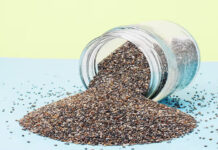The sleep disorder Insomnia is characterized by the inability to sleep. It has been estimated that between 30%-50% of the population suffers from this unfortunate disorder. Of that percentage, it is believed that around 10% suffer from chronic insomnia. In 2005, the National Sleep Foundation (NSF) took a poll. This poll showed that more than half of the participants showed at least one symptom of insomnia throughout the week. These symptoms included waking up and not being able to fall back asleep, waking up repeatedly throughout the night, or waking up and not feeling refreshed or rested. Another poll by the NSF conducted in 2002 showed that women are more likely than men to show signs of insomnia a few nights a week (63% to 54%).
Research over the years has shown that there are some patterns and trends in insomnia. That being said, a certain cause has not been determined as of yet. It can result from a number of things. In this article, we will take a look at some effective ways to fall asleep and get some much needed rest.
- Submerge your face in cold water for 30 seconds. While this sounds like something we would do to have the opposite effect, it can be quite effective. Our bodies need to reset themselves after being in a state of shock or anxiety in order to calm down. According to Well being Vibe by immersing your face in water, your Mammalian Dive Reflex, which is an involuntary phenomenon, can be triggered. It has been shown to lower your blood pressure and heart rate. This can help soothe your nervous system and put you right to sleep.
- Take a hot shower or bath. A hot shower or bath can be incredibly relaxing. Not to mention, when you step out of a hot bath or shower into a cool room, your body temperature drops slightly. This will slow down your metabolic activity which can trigger sleepiness.
- Listen to calming music. This can actually encourage deep sleep. Research has shown that music between 60 and 80 beats a minute can make you calm and ready for a good night’s sleep, as well as boost sleep quality. Also, classical music has been associated with having a healing effect on people who suffer from depression.
- Read a book. Reading is an excellent way to wind down. Both children and adults can benefit from reading before bed, as it can promote longer, deeper sleep. An important factor to take into account, however, is that if you are reading on an electronic device, the light that is emitted may cause difficulty in falling asleep. For this reason, it is suggested that you read from an actual book rather than an e-reader for better quality sleep. So grab a good book, curl up under the covers, and enjoy!
- Consider changing your pillow. If you are sleeping on the wrong pillow, it can cause serious back and neck pain. This will, in turn, make it more difficult to sleep. If you are experiencing issues with your pillow, consider using a proper neck pillow. This can help to align your neck and spine. You could also try using a pillow for your head and one in between your knees. This helps keep your hips in a neutral position, alleviating back pain. This can be essential for a good night’s rest.
- Have sex or masturbate before going to sleep. I can think of worse ways to get a good night’s sleep. Sex (or masturbation) can be a great way to distract yourself from your thoughts and worries. Orgasms also release a hormone called prolactin which makes you feel relaxed and sleepy.
- Breathe deeply. Our breathing naturally slows down while we sleep. Therefore, if we consciously slow our breathing down, it can help us relax and fall asleep. There are some machines that emit a soft blue light that projects onto your ceiling. It rises and falls slowly and by synchronizing your breath to the light, it can help you fall asleep within the seven-minute cycle.
- Quit smoking! Need another reason to quit smoking? It has been shown that many smokers show signs and symptoms of insomnia. It is possible that this is caused by the withdrawals from nicotine that they experience throughout the night.
- Start journaling. The thoughts that circle in our heads as we try and fall asleep can oftentimes be what keeps us awake at night. Worrying about what you have to do tomorrow or the events of the day can cause stress and anxiety which can disturb your sleep. Studies have shown that if you practice journaling and focusing on positive things, then this can calm your mind, relieve stress, and help you get a better night’s sleep. Try writing about all of the positive things that happened during the day. This will give you a sense of gratitude and will ease your mind. A study of 41 college students found that those who journaled had reduced stress levels at the time they went to bed. They also had improved quality of sleep and longer sleep time. Try to set aside 15-20 minutes a day to write down your thoughts, feelings, and positive things in your life. Break out that pen and paper and then rest up!
- Limit your caffeine intake. Of course, when we don’t get enough sleep at night, it is very tempting to reach for another cup of coffee. However, the caffeine could, in turn, keep us up at night. Thus, it becomes a vicious cycle. Having trouble quitting caffeine altogether? Try limiting your intake to earlier in the day. That way it will be out of your system by bedtime.
- Exercise during the day. Exercise has been proven to boost sleep quality by increasing your body’s serotonin levels and decreasing its cortisol levels. Notwithstanding, it is crucial not to overdo it. Excessive physical activity can actually cause poor sleep. Also, exercising earlier in the day has been shown to be better for higher sleep quality as opposed to later in the day.
- Choose the right mattress for you. A survey showed that 9 out of 10 participants said that the mattress you sleep on is crucial for quality sleep. Researchers have also found a direct correlation between changing your mattress support and increased sleep quality. If your mattress is old or uncomfortable, then you should make a change. Don’t let your mattress get in the way of a great night’s sleep.























